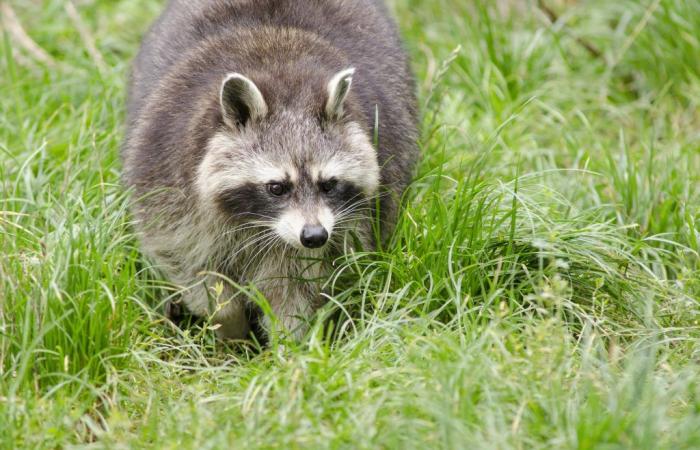The Ministry of the Environment, the Fight against Climate Change, Wildlife and Parks discovered, on December 17, a dead raccoon which was infected with the rabies virus in Saint-Armand, in Estrie.
This is the first case of raccoon rabies detected in Quebec since 2015.
The animal was recovered the same day for analysis. It was discovered 1.4 kilometers from where a case was reported in early December near the Quebec border. This first case was then identified in the municipality of Highgate, Vermont.
Several cases of raccoon rabies have also been detected in this American state over the past year. Tests carried out this month by the Canadian Food Inspection Agency laboratory on raccoons confirmed that the raccoon variant is indeed the cause.
The evolution of the situation is being closely monitored by the government of Quebec, which is continuing its collaboration with the American authorities in order to optimize control and surveillance efforts on both sides of the border.
Vaccination interventions for raccoons, skunks and foxes are also planned for 2025.
Sectors at risk
Due to the presence of an epidemic of raccoon rabies in northern Vermont which has now spread to Quebec, the Ministry is asking the population of 17 Quebec municipalities to increase their caution and vigilance.
In addition to the municipality of Saint-Armand, where the only Quebec case was detected, this notice is issued for Bedford, Dunham, Frelighsburg, Notre-Dame-de-Stanbridge, Pike River, Sainte-Sabine, Saint-Ignace- de-Stanbridge, Stanbridge East, Stanbridge Station, Clarenceville, Henryville, Noyan, Saint-Alexandre, Sainte-Anne-de-Sabrevois, Saint-Sébastien and Venice-in-Quebec.
Recommendations
Rabies is a contagious and fatal disease that can affect all mammals, meaning it can spread from an infected animal to humans. In addition to raccoon rabies, other variants of rabies circulate in Quebec, particularly among bats and foxes.
A person who has been bitten or scratched by an animal or who has come into contact with its saliva should clean the wound with soap and water for 10 to 15 minutes. She must then quickly communicate with Info-Santé 811 in order to obtain appropriate medical follow-up.
-The Ministry also reminds you to never approach an unknown animal, even if it is harmless and apparently healthy, because it could bite and transmit rabies. An animal can carry the disease and develop symptoms several days or weeks after being infected.
Pet owners should vaccinate their dogs and cats against rabies and keep their vaccinations up to date. The same practice applies to other animals going outside.
In the event of contact with a wild animal, it is necessary to determine whether the domestic animal was at risk of transmitting rabies or whether it itself displays suspicious signs of the disease.
The Ministry also emphasizes that it is necessary to avoid moving unwelcome animals or animals that appear to be orphans, as they could spread rabies to areas that are free of it. (N.P.)
Simple and free
Meta (Facebook and Instagram) blocks your news from Courrier Laval, just as Google continues to obstruct them, in response to Bill C-18.
To access your news and stay connected to the source, Courrier Laval invites you to download its application. You can also subscribe to the weekly newsletter. You will be able to continue reading your news for free, in real time with a lower ratio of advertisements. Don’t forget to turn on notifications and spread the word to your loved ones and contacts!
Apple : https://apple.co/3wsgmKE
Android : https://bit.ly/3uGPo1D
Newsletter: https://courrierlaval.com/infolettre/
Print text






